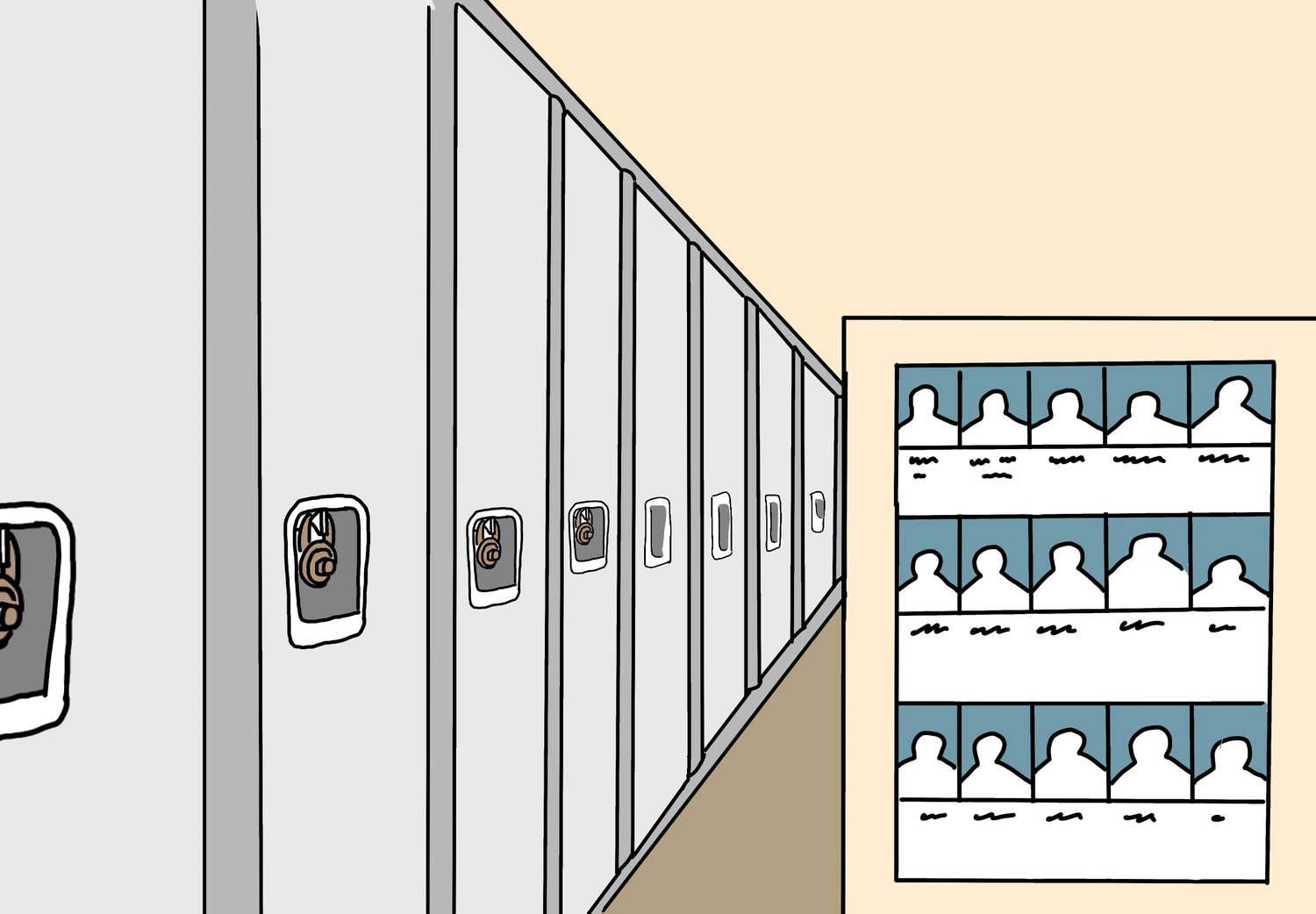
News
HMS Is Facing a Deficit. Under Trump, Some Fear It May Get Worse.

News
Cambridge Police Respond to Three Armed Robberies Over Holiday Weekend

News
What’s Next for Harvard’s Legacy of Slavery Initiative?

News
MassDOT Adds Unpopular Train Layover to Allston I-90 Project in Sudden Reversal

News
Denied Winter Campus Housing, International Students Scramble to Find Alternative Options
Make Us Laugh Until We Cry

Trigger Warning: This article discusses topics of assault, abuse, and suicidality, which may be distressing for some readers
I distinctly remember sitting down in a movie theater late one Friday afternoon to watch Bo Burnham’s “Eighth Grade” with my mother. I was approaching seventh grade, unsure of my friendships, unclear about my future, and nearly paralyzed by uncertainty. As the projector whirred to life, I felt confronted with a version of myself on screen. Elsie Fisher’s performance devastated me — by the end, I was crying in the back row, my mom sitting next to me.
The coming-of-age genre often focuses on high schoolers — off to college, starting new lives, and stepping into adulthood. But for those beyond that phase, middle school can be an even stronger reminder of the life we used to live and how we’ve grown up.
Middle school coming-of-age stories make the most of the visual medium to capture universally awkward, vulnerable moments — a period where identity feels young and undefined. These films pull their audiences through the most uncomfortable scenarios, using humor to momentarily relieve scenes otherwise shrouded in anxiety.
“Eighth Grade” invites audiences into the life of Kayla Day (Fisher), a girl in her last week of eighth grade trying to make friends, get a boyfriend, and shed the image she’s cultivated around campus — which had won her the “Most Quiet” superlative. The film never shies away from cringe comedy, keeping the audience immersed in Kayla’s shoes at her most awkward, laughable moments. Those scenes invite audiences to reflect on their own past experiences, with Kayla’s struggles hopefully representing pieces of their own.
Often, the audience can observe Kayla’s actions from a distance, enabling reflection on past experiences. Middle school is a vulnerable stage in people’s lives. It is a transitional period that balances reliance on others and emerging independence. It’s when core memories are made, ideas and experiences that become critical to our sense of self.
Yet the moments that are so integral to people’s identities are rarely the funny ones. They are often filled with extreme doubt, regret, and despair — the same memories we lie awake thinking about. They eventually become the motivations that drive people to both change and embrace who they are.
Jonah Hill’s “Mid90s,” while imperfect, takes these raw moments and brings them front and center. Stevie (Sunny Suljic), a 13-year-old kid in Los Angeles, spends his days with a group of older skaters who, in some ways, guide and observe his maturation in place of his distant mother (Katherine Waterston). Stevie experiences many firsts — romantic encounters, alcohol, injuries, and run-ins with the law — all with his group of friends, rather than with his family. Each moment has a distinct unease and cringe factor. The language is crude, the emotions are raw, and the violence, when it comes, is extreme. Stevie’s friends are exactly the type of people parents warn their children against. Stevie’s innocence, naïveté, and burgeoning selfhood feel distinctly true to the life of a middle schooler.
The youthful energy of “Eighth Grade” and “Mid90s” can be excruciating to watch when the humor falls away. In “Eighth Grade,” Kayla rejects the sexual advances of a high schooler (Daniel Zolghadri) she trusted. In “Mid90s,” Stevie is beaten by his older brother Ian (Lucas Hedges) and attempts to die by suicide. Their individual vulnerabilities are exploited, challenging their fragile independence.
Another masterful example of this in practice is the under-loved television show, “Pen15,” created by Maya Erskine, Anna Konkle, and Sam Zvibleman. The show follows Maya (Erskine) and Anna (Konkle) in the year 2000 as they journey through seventh grade. Accompanied by a supporting cast of middle school-aged actors, the show portrays topics like pretending to be witches, middle school theater, and discovering masturbation. Unflinchingly exploring the realities of growing up is where the show thrives, and its adult cast members help it do so without ever making the audience concerned for the children on screen.
Similarly to “Eighth Grade,” cringe comedy is at the forefront of “Pen15.” In the show’s second season, the underlying insecurity that bolstered its antics rears its mighty head and flips the lighthearted show on its back. The final two episodes provide a crushing return to reality. Now, instead of cringing at the silliness of AIM screen names, we’re cringing as Maya feels pressured to perform oral sex on her high school boyfriend who only dates her to take her ADD medication.
It’s hard to watch, and that’s the point. It was always hard. We just used to be able to laugh.
“Eighth Grade,” “Mid90s,” and “Pen15” reach remarkable heights on screen. Movies and television are inherently social experiences. Sitting in a dark theater, like I did with my mother, heightens that innate quality — the framing, editing, and combination of movement and sound — that make them distinct amongst the arts.
Susan Sontag put it best: “To be kidnapped, you have to be in a movie theater, seated in the dark among anonymous strangers.”
Middle school coming-of-age movies remind us of our most memorable moments, when our lives were yet to be determined. They make us cringe, they make us laugh, and they make us cry, hitting us in our inner child; the version of us that is still growing up, making mistakes, and fighting on.
Want to keep up with breaking news? Subscribe to our email newsletter.
